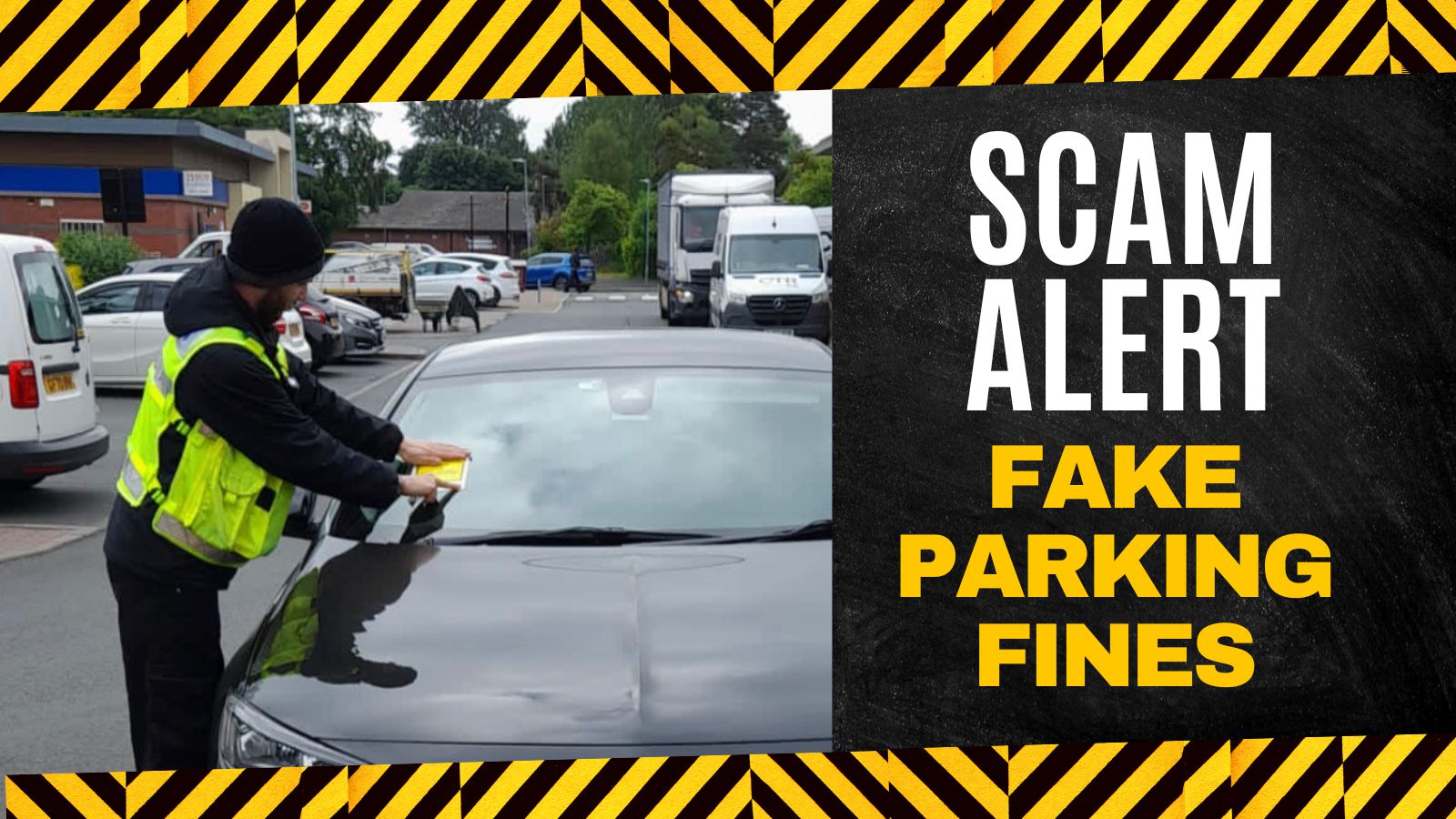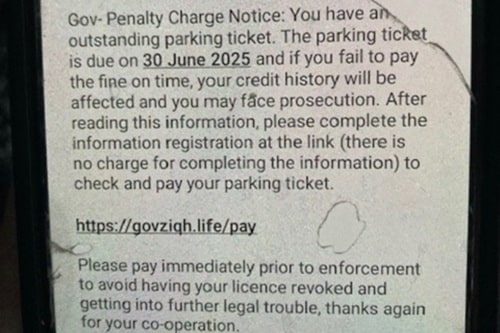Warning Issued to Residents Over New Parking Scam Texts


Residents across the UK are being urged to remain vigilant following a surge in fraudulent text messages claiming to demand payment for outstanding Penalty Charge Notices (PCNs). These scam messages are designed to trick unsuspecting recipients into paying for non-existent parking fines, often by clicking on malicious links or sharing sensitive banking information.
Local authorities, including city councils and transport enforcement teams, are issuing urgent warnings to raise public awareness and help prevent more individuals from falling victim to these deceptive tactics.
⚠️ Understanding the PCN Text Scam
The scam typically involves SMS text messages sent to mobile phones, informing the recipient that they owe payment for an unpaid Penalty Charge Notice. These messages may include links to fake payment websites or request the recipient to reply with personal or banking information.
The content of these messages is often phrased in an urgent tone, using wording such as:
“Your vehicle has an outstanding PCN. Please pay immediately to avoid further charges. Click here to pay: [fake URL]”
These messages may appear to come from a trusted source, sometimes even using spoofed sender names like "GovUK," "Council," or "Penalty Office." Scammers exploit this sense of urgency and authority to manipulate victims into responding quickly without verifying the message.
Local authorities and enforcement agencies wish to reassure the public that they do not use text messages to request payment for PCNs. Any legitimate communication regarding a Penalty Charge Notice will typically be issued through official postal correspondence, clearly displaying the issuing authority’s logo, details of the offence, and instructions for appeal or payment.
If you receive a text message requesting payment for a parking fine, do not respond, do not click any links, and do not provide any personal or financial details.
🛡️ What to Do If You Receive a Scam PCN Message
-
Do not engage with the message
Do not reply, click on any links, or call any numbers listed in the message. -
Delete the message immediately
Removing it from your phone helps prevent accidental clicks later. -
Report the scam
If you’ve received a suspicious message:-
Report it to Action Fraud, the UK’s national fraud and cybercrime reporting centre, at www.actionfraud.police.uk or call 0300 123 2040.
-
Forward suspicious texts to 7726 (which spells "SPAM" on your keypad). This service helps mobile networks investigate and block scam numbers.
-
-
Check your PCN status directly
If you're unsure whether you genuinely owe a PCN, visit your local council's official website or contact their parking enforcement team directly. Do not use links provided in unsolicited messages.
🕵️♂️ Spotting the Signs of a PCN Scam Message
Here are several red flags that indicate a scam:
-
The message contains spelling or grammatical errors.
-
It uses urgent or threatening language, such as "final notice" or "immediate payment required."
-
It contains a generic greeting, such as "Dear driver" or no greeting at all.
-
It provides a suspicious link (e.g., strange domain names or misspelled URLs).
-
It offers no specific details about the PCN offence (such as time, date, or location of the alleged violation).
Legitimate PCN communications will always include:
-
Your vehicle registration number
-
Details of the alleged contravention
-
An official reference number
-
Instructions for appeal and contact
💬 Statements from Authorities
A spokesperson from a local authority warned:
“We are aware of fraudulent text messages circulating that claim to be from a council or enforcement agency asking residents to pay an outstanding PCN. These are fake and should be ignored. We never issue PCN payment requests via text message.”
📉 The Growing Threat of SMS Phishing (Smishing)
This type of scam, commonly referred to as "smishing" (SMS phishing), is on the rise in the UK. It forms part of a broader trend where fraudsters impersonate public institutions to steal money or personal information.
According to the National Cyber Security Centre (NCSC), thousands of smishing messages are reported every month, and parking-related scams are particularly effective, as many drivers receive genuine PCNs and are accustomed to resolving them online.
Scammers rely on volume and plausibility, hoping that a percentage of recipients will have recently parked in a restricted area or be unsure about a recent ticket.
🔐 Protecting Yourself from Future Scams
-
Be sceptical of any unexpected message requesting payment.
-
Use strong passwords for online accounts and consider two-factor authentication.
-
Keep your mobile software up to date to protect against malware and phishing links.
-
Regularly monitor your bank statements for unauthorised transactions.
If you believe you may have fallen victim to a scam and have shared financial information, contact your bank immediately to prevent further loss.
✅ Key Takeaways
-
Never trust text messages asking for PCN payment – they are scams.
-
Do not click links, respond, or provide personal information.
-
Report all scams to Action Fraud and mobile providers.
-
Always verify PCNs through official council websites.
Your vigilance can prevent the success of these scams and protect not just yourself but also others in your community from falling victim. Please help spread the word to family, friends, and neighbours.
Posted on 4 July 2025








